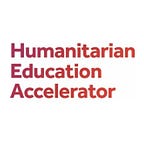HEA Phase 1 Cohort: Kepler
Learn more about the grantees from our first HEA cohort, including some of their learnings on the journey to scale.
What is the innovation?:
Kepler partners with Southern New Hampshire University (SNHU) to provide a blended online university programme in Kigali and in Kiziba Refugee Camp, in Rwanda. The programme pairs online learning with in-person instruction and work experience opportunities, resulting in students earning fully accredited U.S. bachelor’s degrees.
What is the education focus?:
Tertiary Education.
Scaling:
In 2015, Kepler served 312 non-refugee students and 36 refugee students.
In 2019, Kepler has enrolled 707 non-refugee students and 198 refugee students.
In addition to the SNHU degree, Kepler is also applying for local accreditation in Rwanda, in order to offer a locally-developed Bachelor’s Degree in Project Management. At the same time, Kepler is working on a pilot project in Ethiopia, to expand their impact in the region. As they scale, Kepler remains committed to investing in refugee education, recruiting 25% of their student body from refugee communities.
Programme adaptations to support scaling:
HEA Evaluation:
A process evaluation of Kepler’s efforts to refine their approach to formalizing internships and employment for Kepler students was undertaken, in addition to a quantitative impact study of employers in Rwanda, to determine employer knowledge about and attitudes towards recruiting and hiring refugees.
Key learnings:
Kepler highlights the following two key learnings/reflections from their scaling journey so far:
- The importance of direct and early involvement of academic staff in monitoring and evaluation (M&E) framework creation, data collection tools etc.: This ensures monitoring is useful on the ground and motivates staff to ensure collection is accurate. Kepler learned that reviewing and revising tools every six months with the full team provides an opportunity to reflect on what is useful, or not, and what is working, or not.
- As new sites are opened, it is important to step back and take the time to establish formal collaboration plans across sites, as well as between ‘HQ’ and site: As with M&E, stepping back every 6 months to evaluate what is/is not working in terms of communication, collaboration etc. is extremely useful and important for ensuring the innovation is still on the right track.
